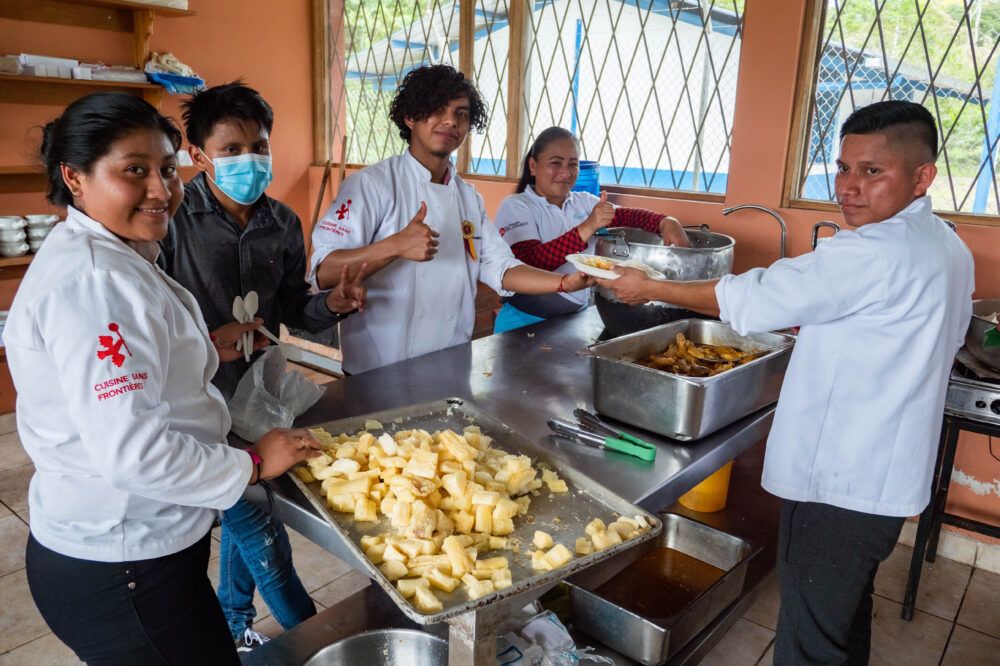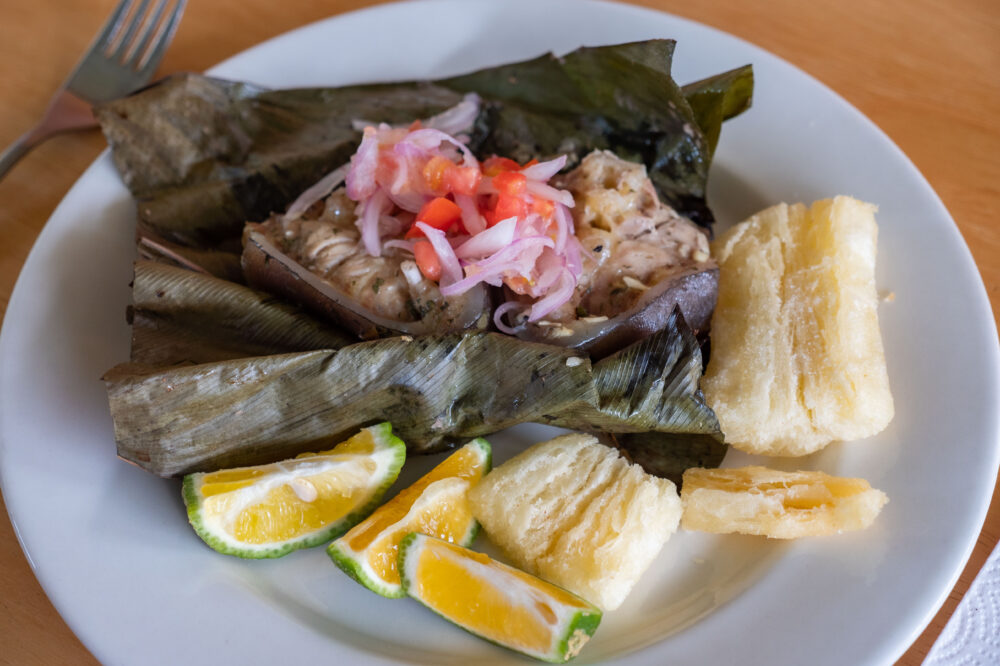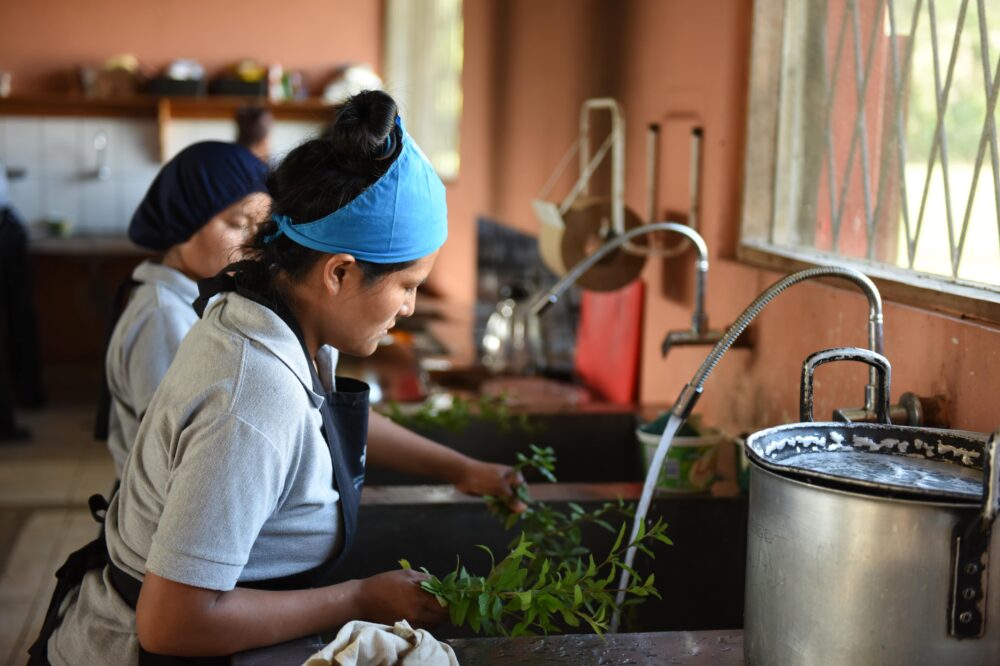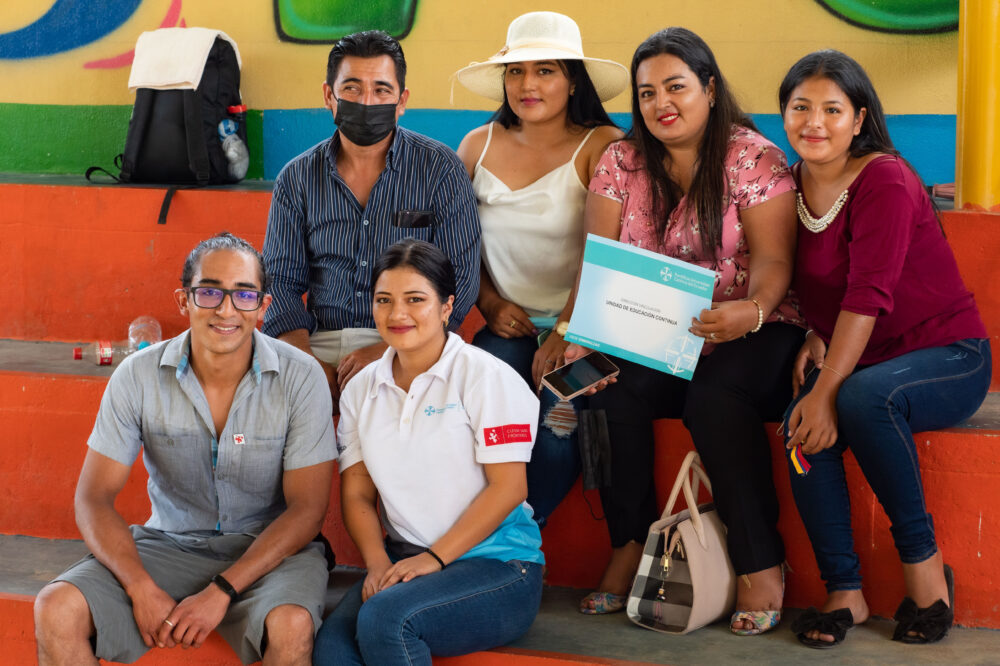The twelve-month training program at the El Fogón rainforest campus equips around twenty young indigenous people each year with the skills to independently establish or manage a gastronomic or tourism-related business.
El Fogón not only provides practical knowledge in gastronomy, environmental conservation, hotel management, languages, marketing, and tourism development but also strengthens the students' sense of responsibility and supports them in preserving their cultural identity. The first cohort started in 2019, and since then, we have witnessed numerous success stories.
Thanks to our collaboration with Universidad ITSO, graduates receive a state-recognized diploma, opening up professional opportunities for them across the country.
Facts
| Project activities | Development and implementation of a twelve-month gastronomic-touristic education with a state-approved degree from a University in Ecuador. |
|---|---|
| Project goals | New source of income for the indigenous people along the Rio Napo to secure their long-term livelihood. Preservation of indigenous culture and promotion of ecologically and economically responsible tourism. |
| Beneficiaries | 25 students per class. |
| Running time | Since 2019 |
Cuisine sans frontières has been active in the Ecuadorian Amazon Basin since 2016, in the tri-border region between Peru, Ecuador, and Colombia. The Yasuní Amazon National Park, located in the province of Orellana, was declared a UNESCO Biosphere Reserve in 1989.
However, in 2013, the Ecuadorian government approved oil drilling in Yasuní. The indigenous communities of the region are directly affected by this decision. The deforestation of the rainforest and the environmental disruptions caused by oil extraction are destroying their hunting grounds and, with them, their livelihoods.
- Indigenous youth are forced to seek alternative employment, yet opportunities for education and social mobility are scarce.
- The situation is further exacerbated by ongoing conflicts between indigenous tribes – conflicts that are intensified by the fact that their current living space has been reduced to only about 5 % of its original area.
- At the same time, the region’s unique biodiversity, indigenous culture, and existing tourism initiatives offer significant potential. Indigenous community organizations and the Ministry of Tourism have been working for years to develop sustainable income sources in this field.
In response to these challenges, Cuisine sans Frontières, in collaboration with its local partner organization Cocina sin Fronteras, has developed a dual, practice-oriented vocational training program for indigenous youth.
In 2019, Csf launched this training program, and since then, more than 60 young people have benefited from the education it provides.
- El Fogón is an advanced gastronomy and tourism training program that leads to a state-recognized qualification. Since 2020, a new cohort has started the program each year.
- This twelve-month training program equips young people with the skills needed to establish or manage a tourism-related business. The collaboration with the ITSO Technical University in Tiputini enables graduates to receive a nationally recognized diploma.
- Beyond technical knowledge and hands-on experience, the El Fogón program fosters personal responsibility and supports students in preserving their cultural identity. Participants complete a three-month and a one-month internship with partner companies, gaining valuable experience in Ecuador’s job market.
- The program also raises awareness among students and their communities about the region’s biodiversity and the sustainable use of natural resources. Furthermore, it strengthens the solidarity of indigenous communities along the Napo River.
The project is generously supported by the Katharina and Tyge Clemmensen Foundation (2024), the Josef P. and Nelly Spiess-Mohn Foundation (2024), and the Fagus Lucida Foundation (2021, 2022, 2023, and 2024).
Facts
| Project activities | Development and implementation of a twelve-month gastronomic-touristic education with a state-approved degree from a University in Ecuador. |
|---|---|
| Project goals | New source of income for the indigenous people along the Rio Napo to secure their long-term livelihood. Preservation of indigenous culture and promotion of ecologically and economically responsible tourism. |
| Beneficiaries | 25 students per class. |
| Running time | Since 2019 |






